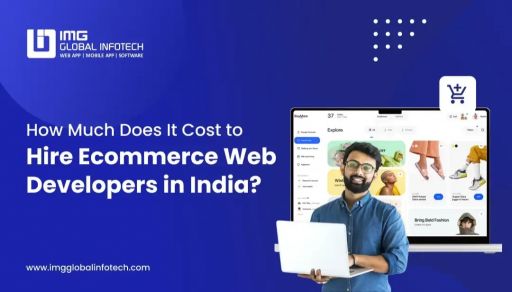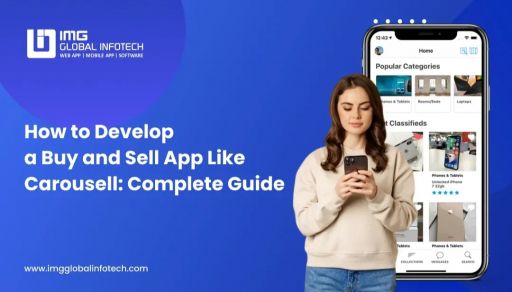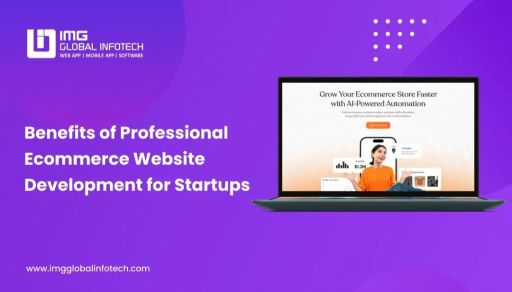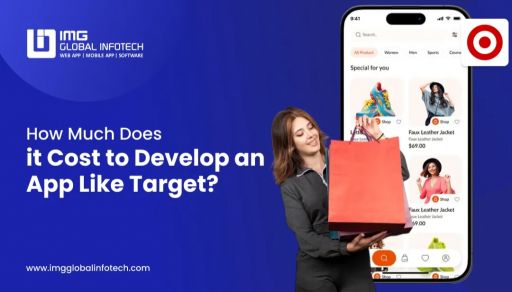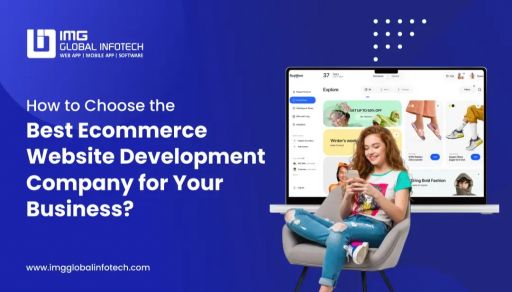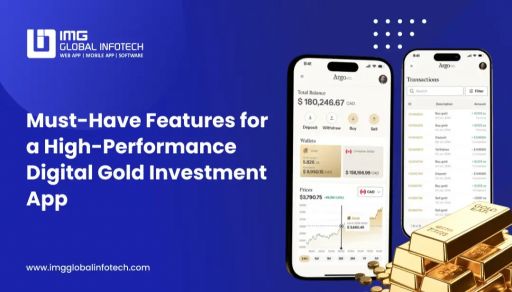B2B Vs B2C: Key Differences Every Business Should Know
Dipti Singhal
Nov 19, 2025
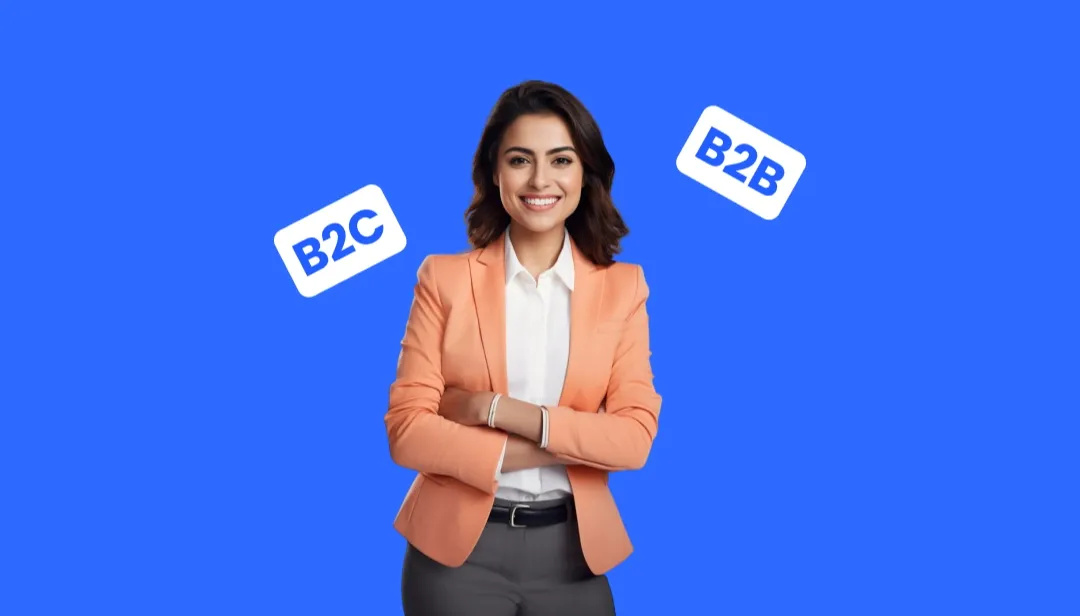
Choosing the right business model is a tricky situation for any marketer, especially for the new ones. The concept of B2B vs B2C might seem puzzling in its initial process. Both markets have their different segments, which are further divided into two major proportions (Audience and Businesses). These business models have different work methodologies that are based on several elements, which we will discuss in this guide later. It majorly depends on marketers which business model can align with their expertise and knowledge.
One thing is the same in both models and that is generating higher revenue in the business. We can talk a whole day on B2B vs B2C key differences in business models but it is important to know more about the major differences between these models as per the different elements and working methods in business as well. In this guide, let's explore the major difference between B2B and B2C. We will also discuss several elements in this blog but first let's start this journey with an introduction of both models as well.
What Is B2B Ecommerce?
A business transaction that occurs between two business organizations is referred to as Business to Business such as supplier and manufacturer, manufacturer and wholesaler, and wholesaler and retailer in B2B vs B2C marketing. Decision-making can be complicated due to the volume of transactions.
In B2B, the businesses are focused on developing a good interpersonal relationship with their counterpart in the transaction primarily because there are few partnerships in the size of the target market and their main goal is to convert prospects into customers.
What Is B2C Ecommerce?
B2C, or business-to-consumer, is when businesses sell products or services directly to you and me. It’s the most common model for us as consumers, whether we are shopping online, eating at a restaurant, or purchasing clothes from a store.
In the B2C model, businesses are selling goods or services directly to the end consumer, for personal use, without a middleman in B2B vs B2C business models. This is often presented in terms of e-commerce, where organizations purposefully sell through online platforms, with the goal of reaching the largest consumer audience possible. B2C is what links consumers to businesses in situations that include shopping for electronics, buying coffee, or booking a doctor’s appointment.
Key Differences Between B2B & B2C
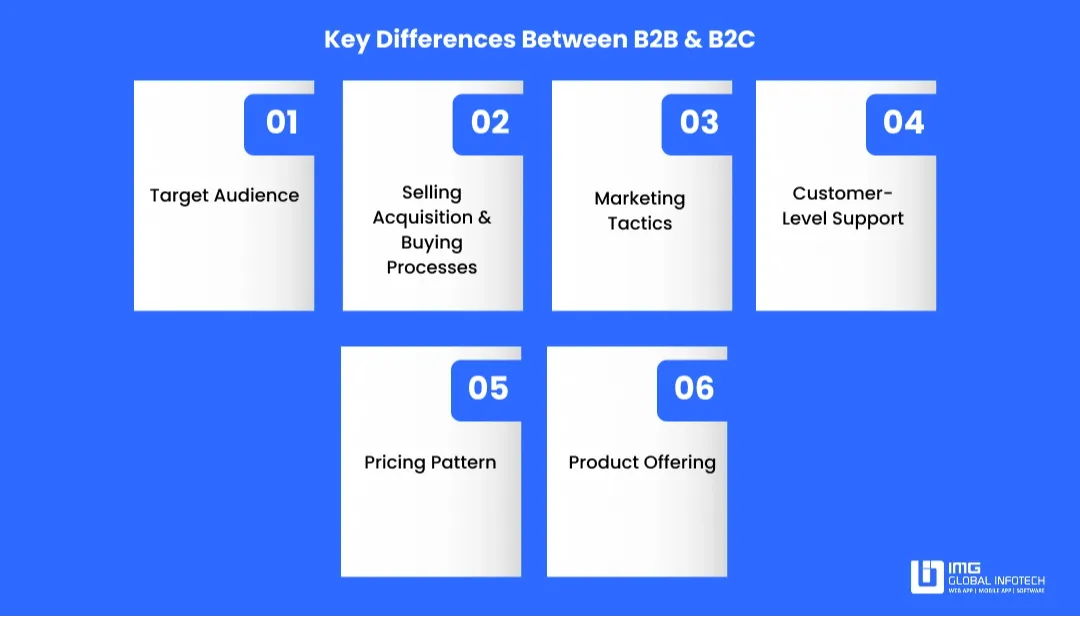
When looking at b2c vs b2b marketing, the dissimilarities extend past the audience. B2B and B2C characteristics each require separate consideration with branding, messaging, buyer journey, and relationships with customers.
Here are the main differences between B2B marketing and B2C marketing that will affect your business strategies.
Target Audience
The major key difference between the b2b vs b2c ecommerce business models is the target audience. Let's discuss this key difference between these models in brief.
In the B2B business model, a marketer has to pitch the product and services in a creative way that can make them more than an ordinary marketer in B2b ecommerce app development. They can use their track records along with the audience persona with different members like high-level executives, finance heads, IT heads, and managers.
On the other side, the B2C buyer persona majorly depends on the audience's interest and preference. The marketer has to display their product and service that relate to customer needs that are based on several elements like pricing, location, gender, and demographics as well.
Selling Acquisition & Buying Processes
Due to their complexity, B2B sales cycles often take more time. The products or services involve multiple stakeholders in the decision-making process, taking days or weeks to develop the proposal and negotiate in b2b ecommerce vs b2c ecommerce. SaaS vendors and industrial product sellers and manufacturers tend to spend a long time talking through solutions before moving forward with the sale.
B2C sales cycles are usually much shorter. Consumers typically decide to buy quickly, often based on an immediate need or desire for an item. Shopping apps, fast fashion brands, and grocery stores show a quick turnaround in B2C sales, for example.
Marketing Tactics
B2B marketing includes strategies such as writing articles, sending emails, and contacting prospects personally to develop relationships over time. It can also involve trade shows, webinars, and industry journals of b2b marketing vs b2c marketing. Specific examples of B2B applications include a LinkedIn campaign that targets decision-makers or white papers designed to communicate B2B industry knowledge.
On the other hand, B2C marketing leans towards direct advertising tactics, social media campaigns, and influencer marketing to generate immediate engagement and sales. Specific examples of B2C applications include Instagram ads for lifestyle products and YouTube promotions by influencers.
Customer-Level Support
Customer support is an important factor in both business models (B2B and B2C) as well. Let's discuss this topic more briefly.
In B2B operations the customer-level support mainly depends on the self-service model of b2b marketing vs b2c. In simple words, the second party needs to put in more effort for any update, especially with new prospects and large orders in the business as well.
In B2C operations the customer-level support is very reliable and quicker as compared to the B2B business model from b2b vs b2c e commerce. But this support mainly depends on the workflow of the business in the customer service for any product and service as well.
Pricing Pattern
Pricing is also an extensive point in this conversation. The B2C model pricing is generally consistent, but sometimes it can vary due to coupons, vouchers, and special offers of b2b vs b2c companies. In B2B businesses, this model has different pricing patterns and it majorly depends on the demand for products and services in the market.
In B2B operations, the pricing often isn't shown upfront of everyone but it is negotiable in some cases of b2b business vs b2c. The specific users can show their prices, which can carry a typical access for the pricing model in their business as well.
On the other hand, in B2C operations the pricing patterns are available for everyone, and the businesses can get instant discounts on their purchases in the form of sales in B2c ecommerce app development, coupons, and special offers as well.
Product Offering
This point is trending in both business models (B2B and B2C) as well. Let's discuss this point in detail.
B2B eCommerce models generally provide a wide assortment of products and services designed for businesses in b2b vs b2c marketing differences. Within B2B models, businesses might buy raw materials, manufacturing equipment, office supplies, or business services like consulting and software.
Typically B2C eCommerce models provide a more extensive range of products and services for individual customers (consumers) to Start an ecommerce business. Within B2C models, consumers would purchase products like a shirt or pair of shoes, it can also be services such as travel or entertainment.
Comparison Table
In discussing the B2B vs B2C model, it is evident that the two business types differ in more ways than just their respective consumers of b2b vs b2c examples. The way they operate, market, provide customer service, and engage their consumer audience can all differ greatly.
We will now highlight the B2B vs B2C marketing differences and outline the characteristics that differentiate these two types of business models. Comprehensive understanding of the characteristics that differentiate B2B vs B2C can help with the decision process of building strategies for success.
Which One Is More Profitable in 2026?
Your choice of B2B versus B2C should be dictated by how best your product delivers value, the type of sales motion required, and the scaling strategy that makes the most sense for, e.g., Shopify ecommerce website development. Below are clear benefits of each model to help align with profitability goals and execution strengths.
B2B Perspective:
-
Longer contracts, with recurring orders, create steadier cash flows and more predictable capacity planning.
-
Value-driven buying favors solutions that integrate, reduce risk, or improve workflows, supporting premium pricing.
-
Long-term, the account relationship unlocks upsells, cross-sells, and expansion revenue.
-
Lower churn and higher lifetime value offset longer sales cycles and enable sustainable growth.
-
Service bundles, compliance support, and integrations help differentiate offerings and protect margins.
B2C Perspective:
-
Large addressable audiences allow scaling quickly due to brand, distribution, and network effects.
-
Short purchase cycles let one quickly test and iterate on product, pricing, and messaging.
-
Strong design, community, and memberships lift repeat rates and lower blended acquisition costs over time.
-
Self-serve journeys reduce sales overhead, thereby supporting automation for efficient operations.
-
Partnerships, marketplaces, and creators extend reach without heavy account management burdens.
Final Words
Through this blog, we have discussed B2B vs B2C (key differences every business should know). We have also discussed several other topics in this blog. It mainly includes an introduction, definition & meaning, key differences, comparison table, and profitable business model in 2026.
Developing successful business strategies requires an understanding of the main distinctions between B2B and B2C. B2C transactions prioritize customer experience and satisfaction, whereas B2B transactions concentrate on long-term relationships and supply chain integration. Both models emphasize the significance of understanding your audience by requiring customized approaches to CRM and product customization.
As a leading Ecommerce development company, we are always available to build custom e-commerce apps for your business. Connect with IMG Global Infotech to enhance your business presence in the market to generate higher revenue and profitability as well.
-
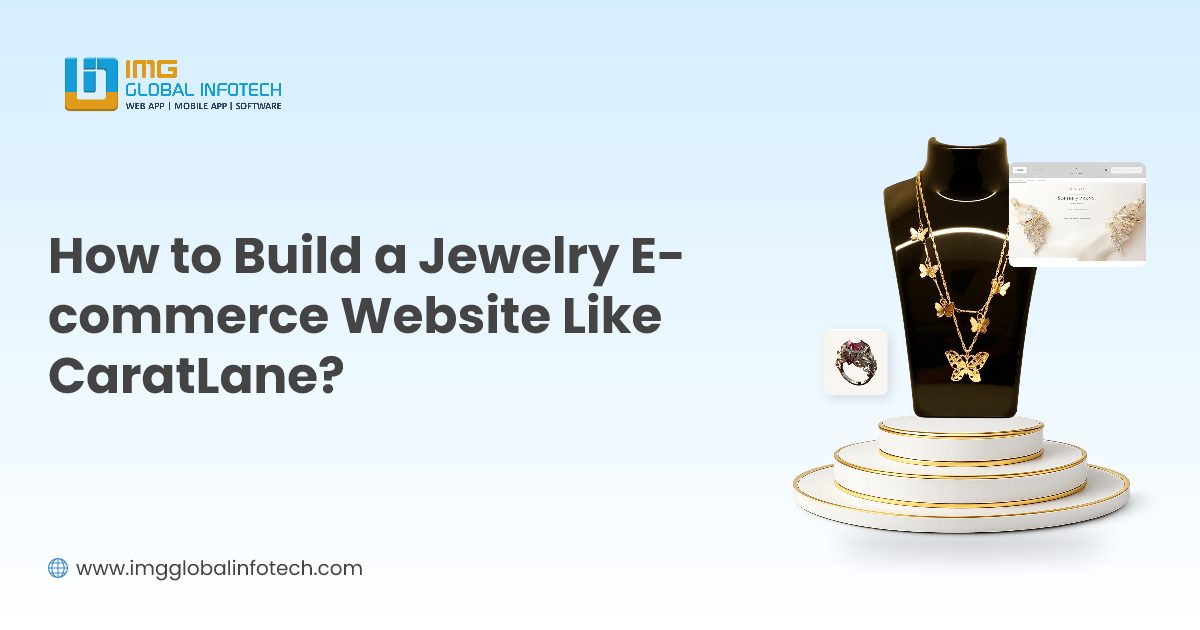 How to Build a Jewelry E-commerce Website Like CaratLane?
How to Build a Jewelry E-commerce Website Like CaratLane?
-
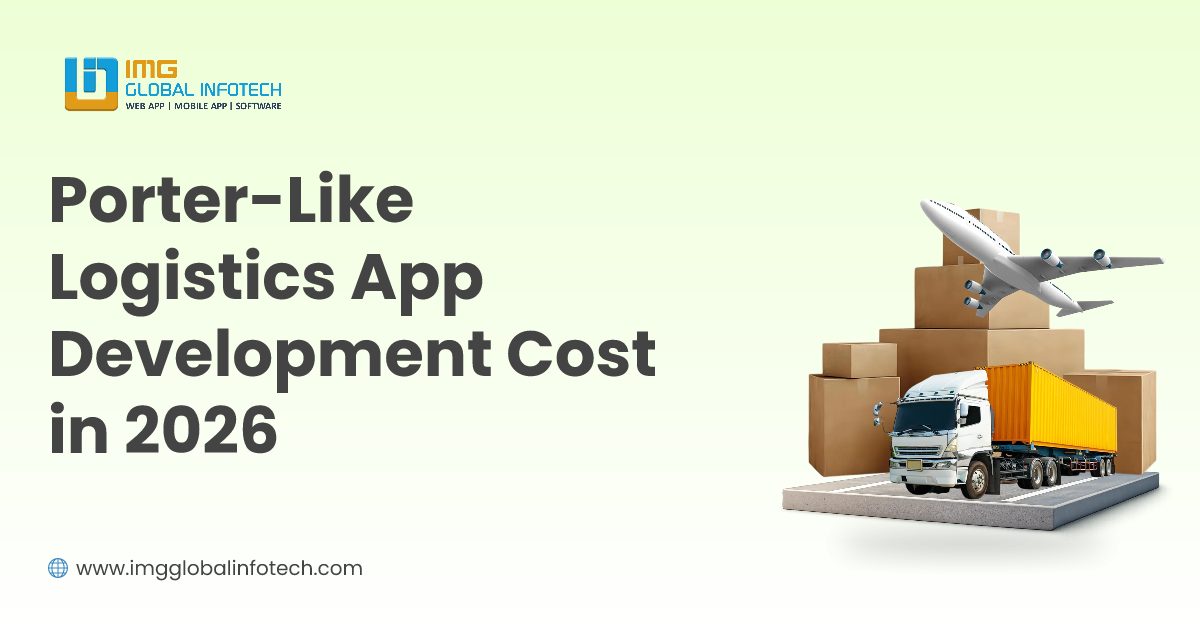 Porter-Like Logistics App Development Cost in 2026
Porter-Like Logistics App Development Cost in 2026
-
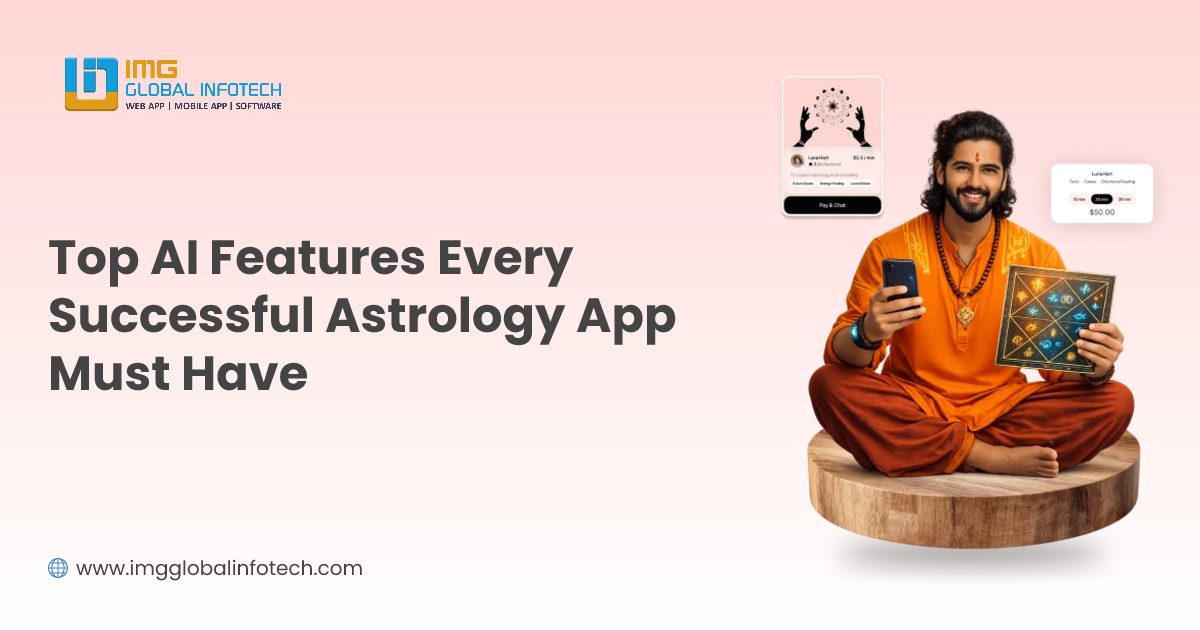 Top AI Features Every Successful Astrology App Must Have
Top AI Features Every Successful Astrology App Must Have
-
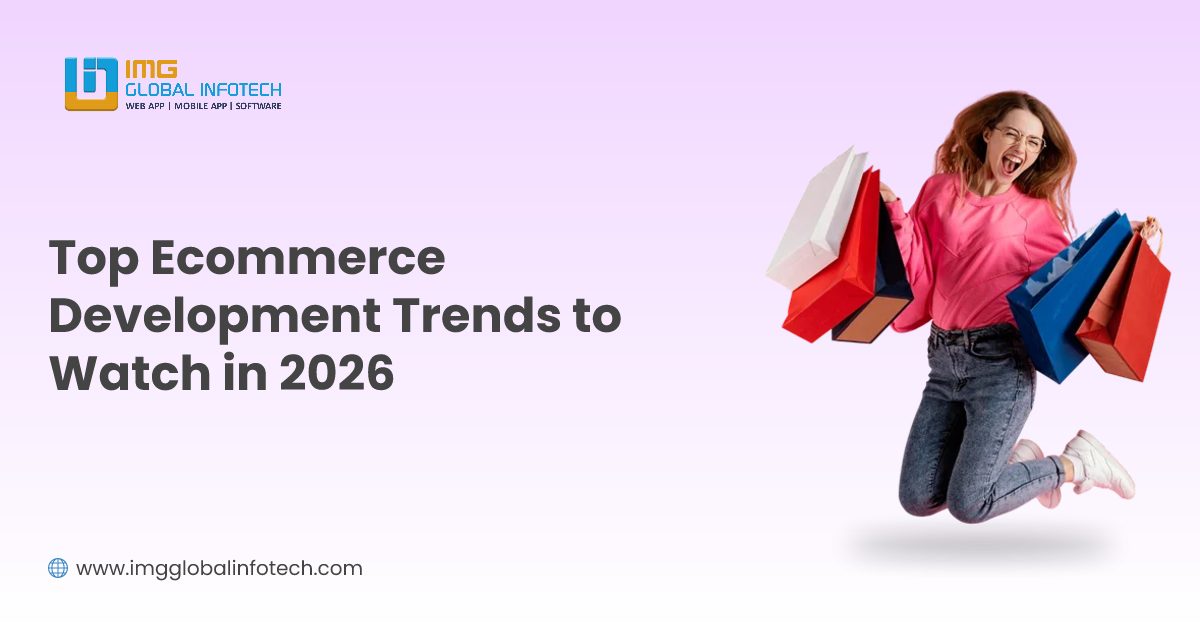 What Are the Top Ecommerce Development Trends to Watch in 2026?
What Are the Top Ecommerce Development Trends to Watch in 2026?
-
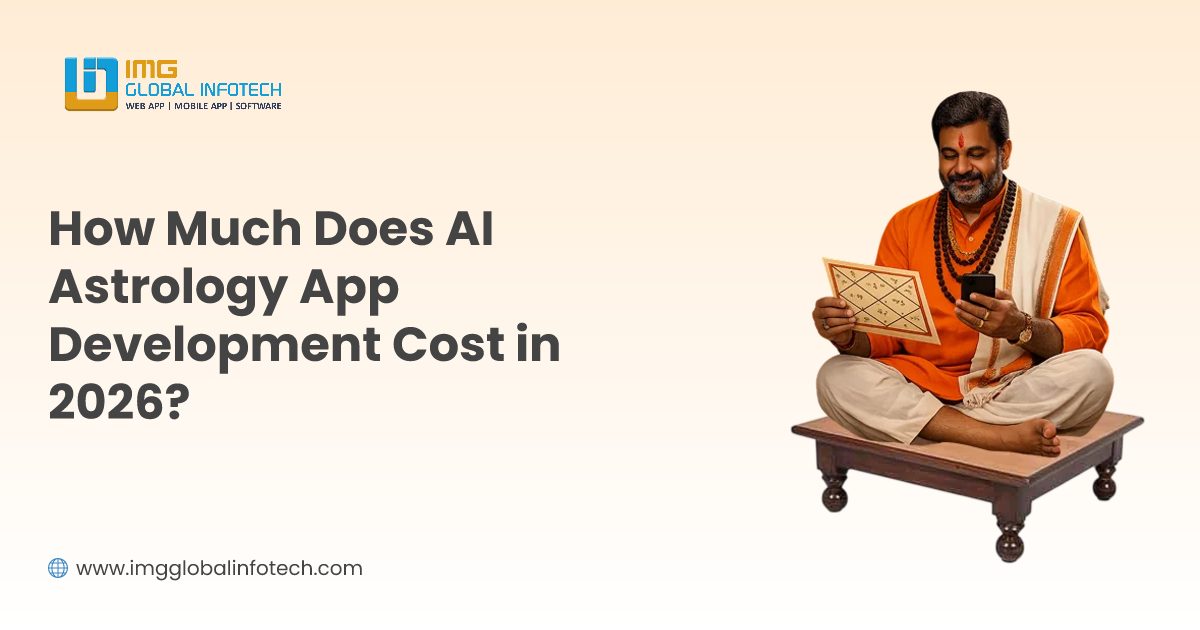 How Much Does AI Astrology App Development Cost in 2026?
How Much Does AI Astrology App Development Cost in 2026?
-
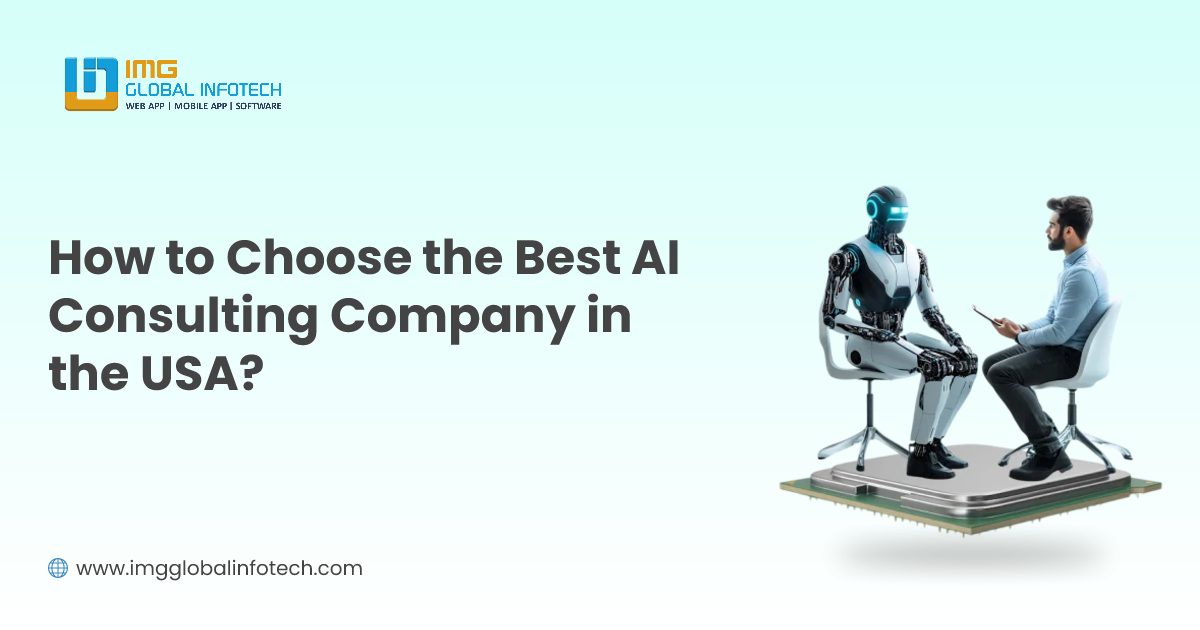 How to Choose the Right AI Consulting Company in the USA?
How to Choose the Right AI Consulting Company in the USA?
Dipti Singhal is a skilled Content Writing Specialist at IMG Global Infotech, with strong expertise in creating engaging, SEO-optimized content for various industries. She focuses on blending storytelling with effective keyword strategies to help businesses connect with their audience and improve their online visibility. Passionate about delivering high-quality content that drives real results, Dipti plays an essential role in strengthening the company’s digital presence.


